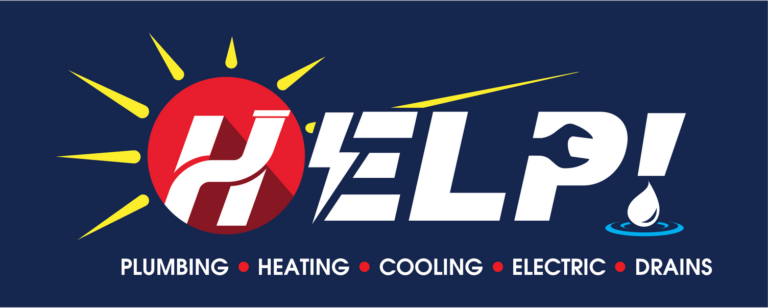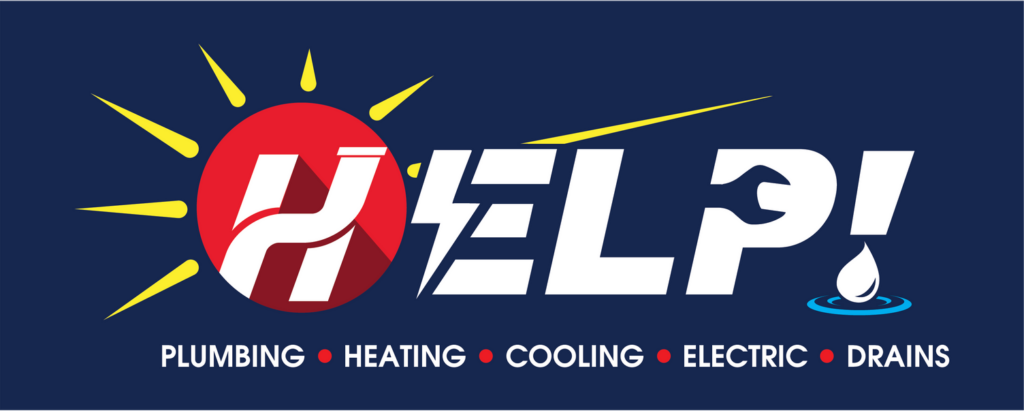Your home has a lot of systems and appliances that are essential to keep it running as it should, but one of the most overlooked is the electrical panel. This is the heart of your home’s electrical system and distributes power to all your essential – and nonessential – appliances.
If your electrical panel is outdated, inefficient, or hazardous, it can compromise the rest of your home’s systems. Worse yet, a malfunctioning electrical panel could lead to issues that range from tripped breakers to electrical fires.
Electrical panel repair or replacement isn’t something to take lightly, however. At HELP Plumbing, Heating, Cooling, Electric, and Drains, our technicians receive over 200 hours of specialty training. Learn everything you need to know about electrical panel repair from the most qualified electricians in the region.
What Is an Electrical Panel?
An electrical panel, known as a circuit breaker box, service panel, distribution board, or load center, is a central hub that connects all the power lines from your street to your internal electrical wires to power your home. This feature is necessary to distribute electricity from the utility lines to the circuits within your home.
Each circuit has a breaker or fuse that switches off automatically – or “trips” – if there’s an overload to short circuit. This is a necessary safety feature to prevent electrical damage or fires.
How Do Electrical Panels Work?
The electrical panel is a simple appliance overall, but it’s important to understand how it works to understand what can go wrong.
The main function of an electrical panel is to distribute power from the exterior power lines to your interior electrical lines. Electricity from your utility company comes in through the service wires that connect to the main breaker.
Essentially, the electrical panel is a gatekeeper to distribute power to individual circuit breakers, which are connected to a specific set of appliances or outlets. The electricity flows from the main circuit breaker to provide power when you flip a switch or plug something in.
The electrical panel has grounding and neutral wires that are important for safety. The neutral wire provides a path for the current to return to the source, while the grounding wire provides an alternative path for electrical currents if a fault occurs. This will direct the electrical current into the ground to reduce the risk of fire or electrical shocks.
Aside from distributing power, the electrical panel is a critical safety device to prevent electrical overloads and short circuits that can be dangerous. This can happen if too many appliances are drawing power from the same circuit or a live wire with current comes into contact with a neutral wire, leading to a surge.
With both overloads and short circuits, the sudden surge in electrical current generates a lot of heat, potentially causing a fire. Circuit breakers will trip if they detect these issues, stopping the flow of electricity.
It’s easy enough to fix a trip – just switch the breaker from the “off” position to the “on” position – but it’s important to understand why it tripped in the first place. If you just switch it back on every time and there’s a problem, you could be overriding this crucial safety measure.
Electrical Panel Components
The components of an electrical panel include:
- Main breaker: The main breaker is located at the top of the panel and controls the power supply to your home. It connects to the service wires from the utility company. If there’s an emergency in your home, you can flip this breaker – which is larger than the others – to shut off power to your home.
- Circuit breakers: Electrical panels have a series of smaller circuit breakers that are connected to different circuits in your home. Each breaker works independently, so you can cut power to specific outlets or appliances. Individual breakers are designed to handle a certain amount of current in amperes (A). When a circuit draws more than its capacity, it will trip to avoid fires.
- Bus bars: These are thick metal strips inside the panel that distribute power from the main breaker to the individual circuit breakers. They route electricity.
- Ground and neutral bars: These metal bars connect to the neutral and copper or insulated grounding wires. The neutral bar provides a return path for current to go back to the utility grid, while the ground bar connects to the grounding wires as an alternative for current to go to the ground if there’s a fault.
- Wires: Electrical panels have a lot of wires coming out of them. The black or red wires are “hot,” meaning they carry electricity to the circuits. White wires are neutral and carry the current back to the panel. Green or bare copper wires are grounding wires to send the current to the ground as a safety precaution.
- Signs That You Need a Panel Replacement
- It’s important to recognize the signs that your panel needs to be repaired or replaced for safety. These include:
- Frequent circuit breaker trips: Circuit breakers can last for decades without major problems. If you’re getting a lot of trips, it’s likely an overloaded circuit that needs to be replaced.
- Flickering or dimming lights: Your lights should only dim if they’re on a dimmer switch. If this happens, it could indicate a problem with your electrical panel or your utility company. Often, lights will flicker or dim if you’re using too many appliances at once.
- Burn marks or a burning smell by the panel: If you notice a burning smell or burn marks around your panel, call a professional electrician as soon as possible. This could mean there’s a frayed or exposed wire behind the panel.
- Outdated panel capacity: Electrical panels have evolved over time, just like homes. Older electrical panels no longer meet the contemporary needs of homeowners and their appliances, so they need to be replaced to avoid overload.
Can I Fix My Electrical Panel Myself?

Unless you’re a certified electrician, you shouldn’t take on electrical panel repairs or replacement on your own. Electricity is nothing to tackle without proper training and safety precautions, as even small mistakes can cause serious harm or even death.
However, there are maintenance tasks you can do on your own to keep your electrical panel in good shape. Here are some steps to follow:
- Visual inspections: Check your electrical panel for signs of damage regularly, including overheating or corrosion. If you notice any problems, contact a licensed electrician as soon as possible.
- Cleaning: The area around your electrical panel needs to be clean and free of dust and debris. This helps to keep your panel well ventilated and avoid overheating.
- Tighten connections: Your electrical connections can become loose because of vibrations and temperature changes over time. You can tighten the connections within your panel on your own to avoid arcing and electrical issues.
- Test circuit breakers: Regularly testing circuit breakers by turning them off and on can ensure that they function as they should and interrupt power as needed.
- Label circuits: Make sure you know which circuits are which by labeling them. Then, if one trips or you notice electrical problems, you can address them quickly and safely.
- Keep it dry: Ensure that the area around your panel stays dry. Moisture can cause corrosion and electrical problems, so don’t wait to get this fixed.
- Surge protection: Consider installing surge protection devices to protect your electrical panel from voltage spikes from electrical surges.
- Prioritize safety: Make sure you’re safe when you’re performing any maintenance tasks. Turn off the main power supply before working on the electrical panel, and if you’re not comfortable, call a professional electrician.
- Schedule professional inspections: Arrange for a licensed electrician to perform inspections of your electrical panel and identify problems early.
- Upgrade as needed: if you are renovating your home or need more electrical power, upgrade your panel to accommodate this increased capacity.
When to Call a Professional

Though it may be tempting to save money and do your electrical panel repairs or replacement on your own, it’s best to leave the work to a licensed electrician. If you don’t have the tools and training, the job can be much harder, longer, and potentially more expensive than if you paid a professional to do it.
What’s more, improper installation of an electrical panel can be extremely dangerous. You could end up damaging your electrical panel, causing a fire, or sustaining an uncomfortable or even life-threatening electrical shock. Even if the main breaker is disconnected, parts of the panel can still be live.
Even if you complete the electrical panel repair without incident, doing any part of the repair wrong can turn your panel into a ticking timebomb that may have an overload, short circuit, or other problem that causes an electrical fire in the future.
Electricians have the proper training and equipment to complete the job quickly, cost effectively, and most importantly, safely. You also need to navigate getting the right panel, obtaining permits, and more, which is much easier with the aid of an experienced professional with local knowledge.
Upgrade Your Electrical Panel
Whether you need minor repairs or it’s time to replace your outdated electrical panel, HELP Plumbing, Heating Cooling, Electric, and Drains is here for you.Contact us today to schedule your appointment!


